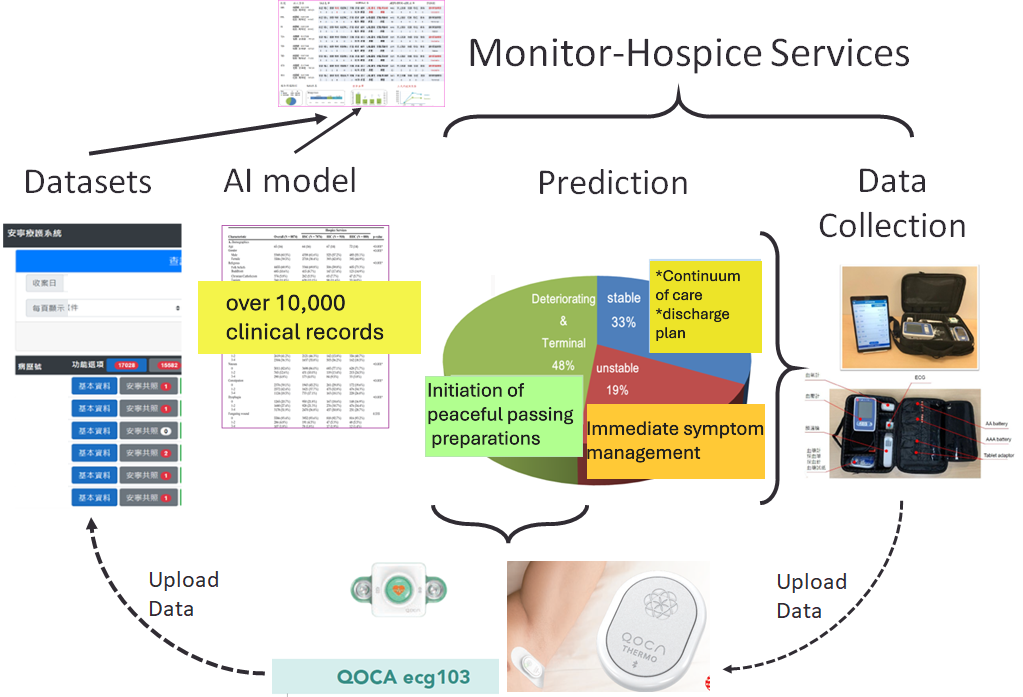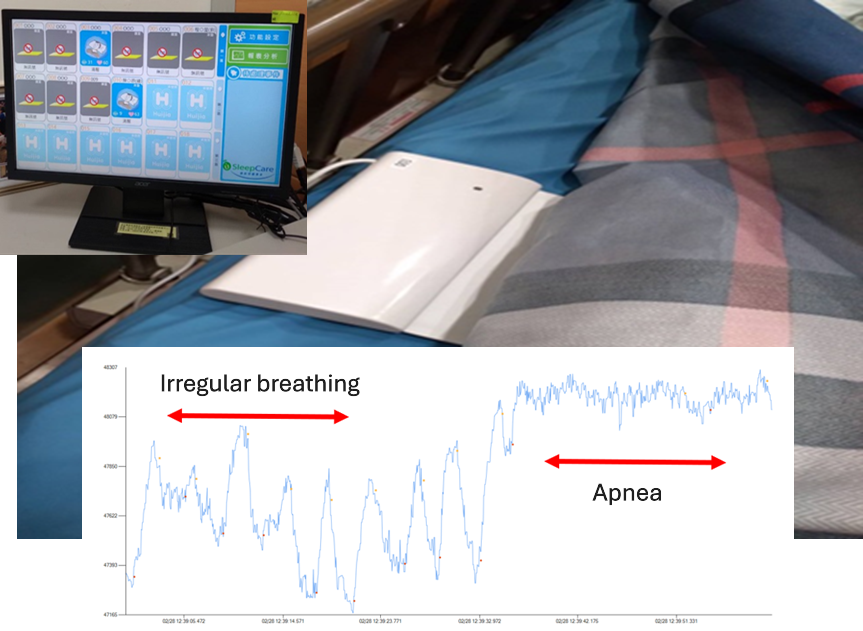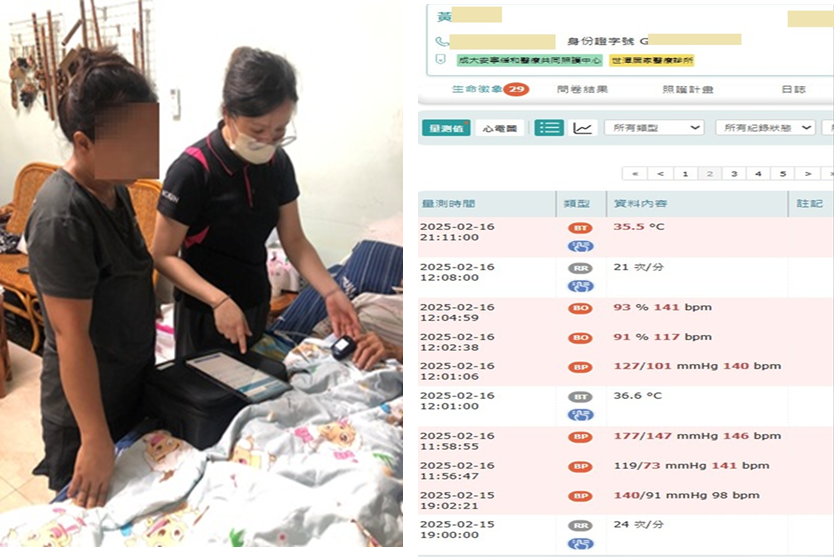The Palliative Home Care Team at National Cheng Kung University Hospital (NCKUH) provides seamless, 24/7 end-of-life care for terminally ill patients transitioning from hospital to home, easing the emotional burden often associated with home-based care. The team includes palliative care physicians, home care nurses, social workers, music therapists, spiritual care providers, and volunteers, collectively serving around 8,000 patients annually.
To bring the philosophy of palliative care into home-based medical services and increase the percentage of patients who can pass away peacefully at home, the team achieved a percentage of dying at home by 83% in 2024. Since July 2022, they have built a smart hospice care service platform. This platform incorporates a remote care package including physiological sensors such as ECG monitors, pulse oximeters, thermometers, blood pressure monitors, and video conferencing tools. The collected data is transmitted to the hospital platform, enabling healthcare providers to access and monitor patient's physiological conditions remotely, identify signs of imminent death, timely guide families to prepare for end-of-life, and arrange home visits or remote support accordingly.
The team also uses a smart mattress to detect changes in respiratory rate, apnea events, and breathing amplitude in terminal patients, issuing alerts in the event of abnormal patterns. In addition, AI-powered deep learning technology is employed to predict life expectancy. The team has collected over 10,000 clinical records from the Palliative Care Outcome Collaboration (PCOC) to train a predictive model that classifies patients into different stages of care. These stages include:
Stable phase: Focus on discharge planning;
Unstable phase: Immediate symptom management;
Deterioration and end-of-life phases: Initiation of peaceful passing preparations.
By integrating intelligent medical technologies into the full continuum of palliative care, this initiative enhances the sense of security for both patients and caregivers while reducing the physical and emotional burden on healthcare professionals.


